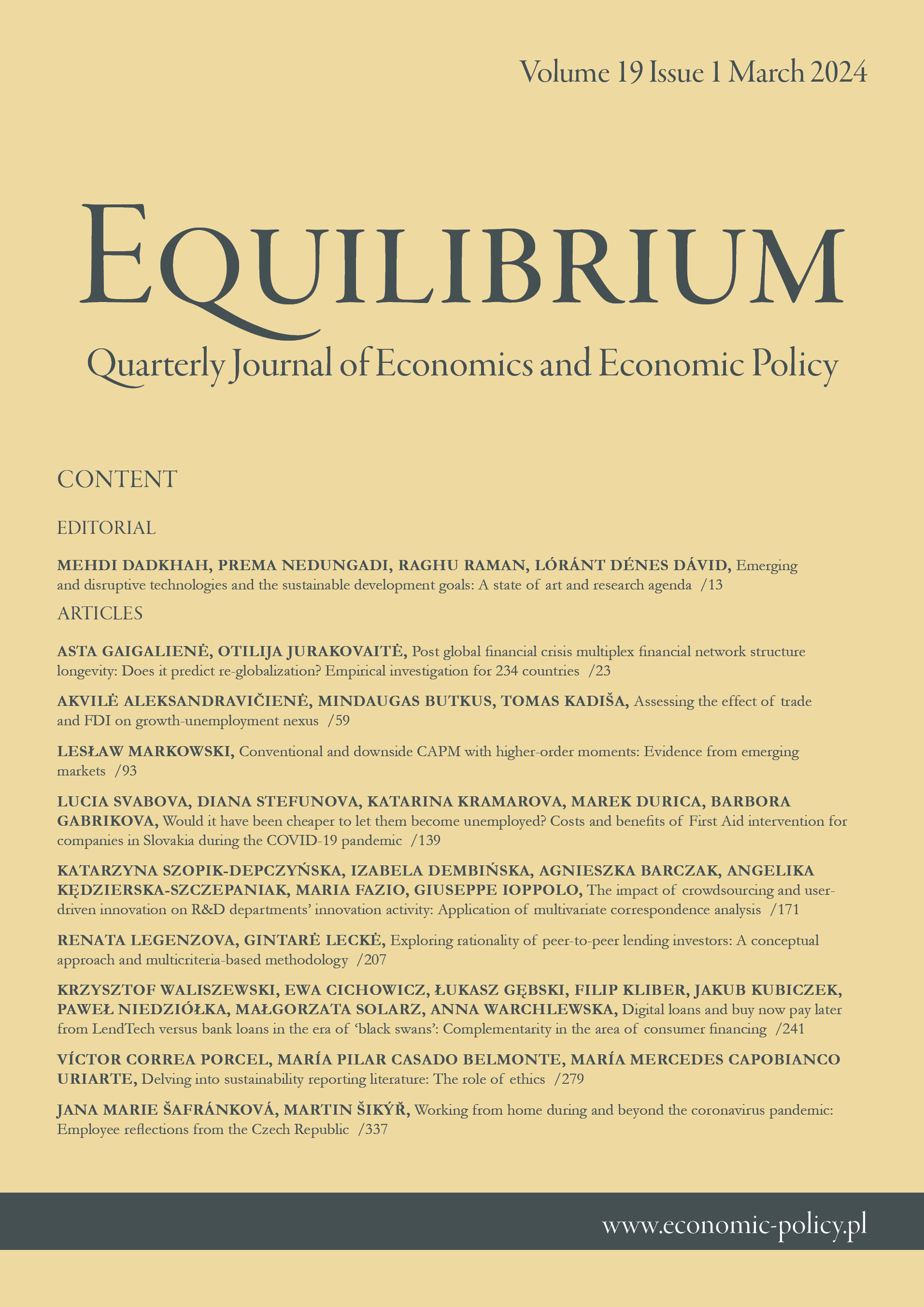将税收分配给地方政府:来自德国和波兰的经验
IF 6.2
Q1 ECONOMICS
Equilibrium-Quarterly Journal of Economics and Economic Policy
Pub Date : 2016-12-28
DOI:10.12775/EQUIL.2016.031
引用次数: 2
摘要
分税制安排为中央以下各级政府提供了相当大的财政资源。这一说法对单一制和联邦制州都适用,尽管各国的税收分享机制存在显著差异。本文的基本目的是比较德国和波兰采取的机制。它评估了被分析国家中授予地方中央政府的税收自治程度,概述了联合(共享)税收的分配原则,并提供了地方中央政府税收构成的统计数据。本文章由计算机程序翻译,如有差异,请以英文原文为准。
ALLOCATING TAX REVENUE TO SUB-CENTRAL GOVERNMENT LEVELS: LESSONS FROM GERMANY AND POLAND
Tax sharing arrangements provide considerable financial resources to sub-central government levels. This statement is true both for unitary and federal states although tax revenue sharing mechanisms differ significantly across countries. The basic aim of this article is to compare the mechanisms adopted in Germany and in Poland. It assesses the degree of tax autonomy granted to sub-central government levels in the countries analysed, overviews the principles of apportionment of joint (shared) taxes and presents statistics on tax revenue composition of sub-central government levels.
求助全文
通过发布文献求助,成功后即可免费获取论文全文。
去求助
来源期刊
CiteScore
9.20
自引率
3.50%
发文量
28
审稿时长
36 weeks
期刊介绍:
Equilibrium. Quarterly Journal of Economics and Economic Policy is a scientific journal dedicated to economics, which is the result of close cooperation between the Instytut Badań Gospodarczych/Institute of Economic Research (Poland) and Polish Economic Society and leading European universities. The journal constitutes a platform for exchange of views of the scientific community, as well as reflects the current status and trends of world science and economy.
The journal especially welcome empirical articles making use of quantitative methods in: Macroeconomics and Monetary Economics, International Economics, Financial Economics and Banking, Public Economics, Business Economics, Labor and Demographic Economics, Economic Development, and Technological Change, and Growth.
Current most preferable topics and special issues:
The economics of artificial intelligence: business potentials and risks;
Digitalization and entrepreneurship in economics;
Sustainable socio-economic development, environmental and ecological economics;
Transition in the energy market (improving energy efficiency, alternative energy sources, renewable energy, energy security).

 求助内容:
求助内容: 应助结果提醒方式:
应助结果提醒方式:


